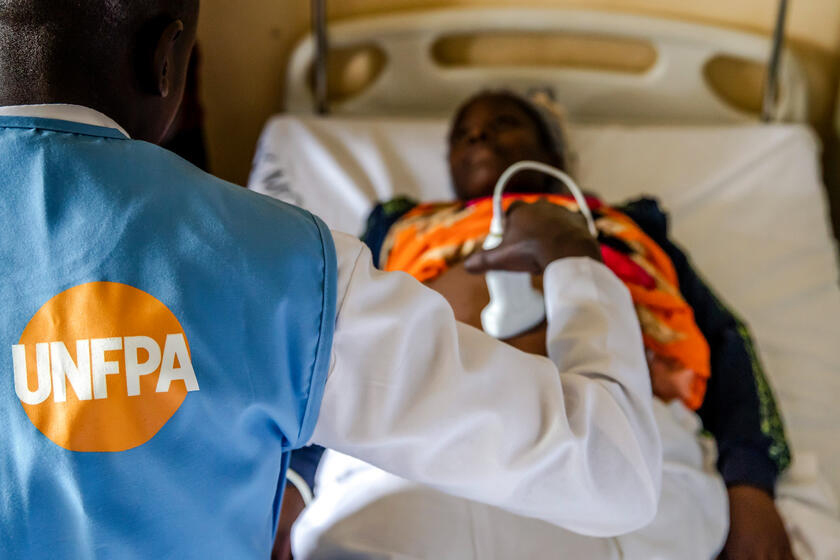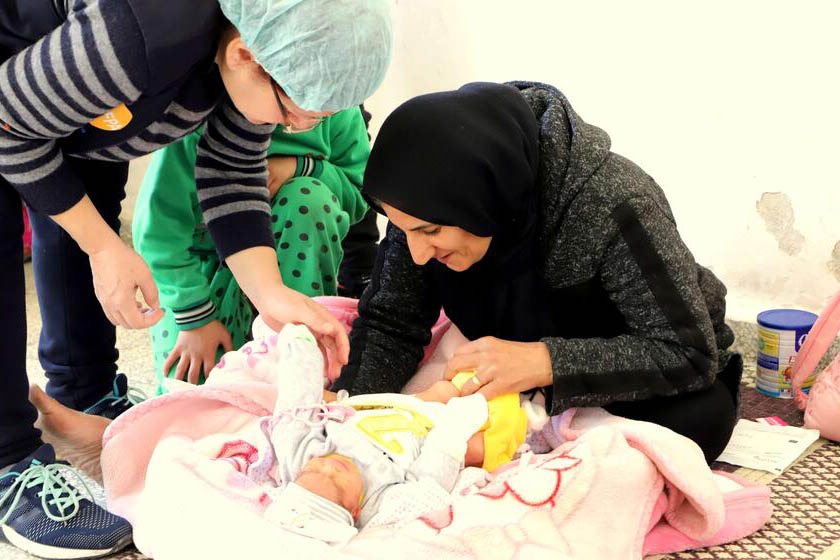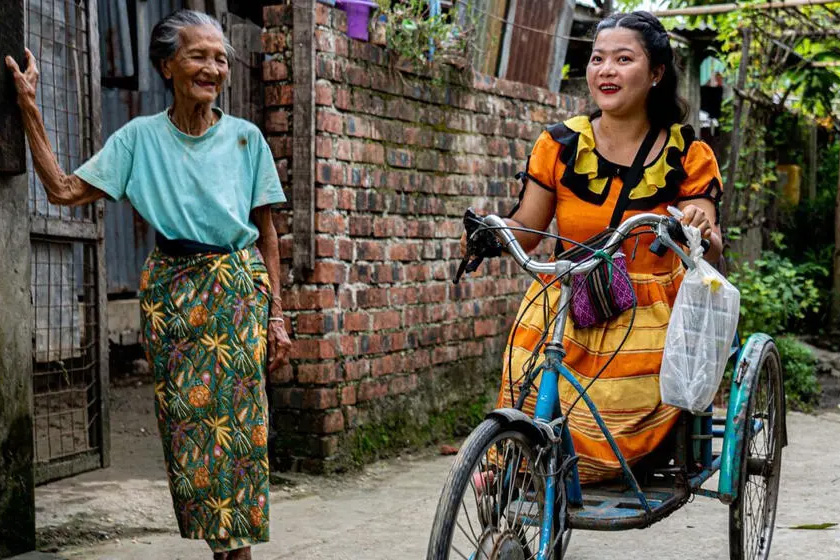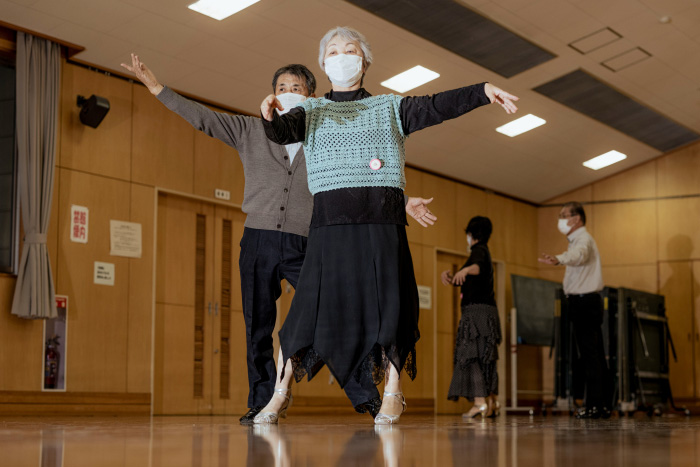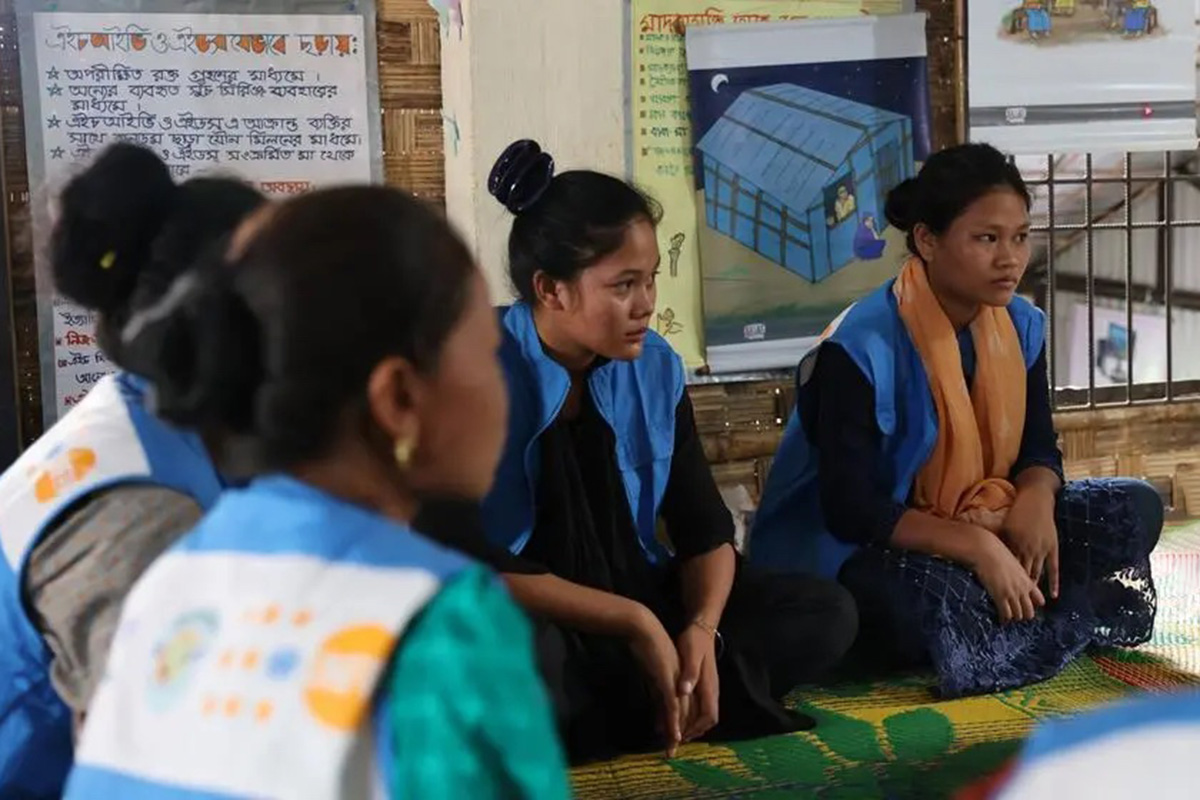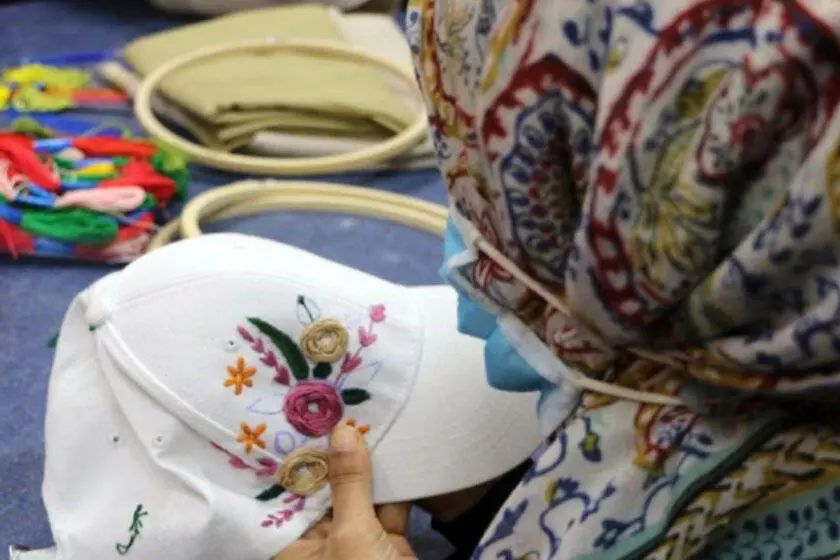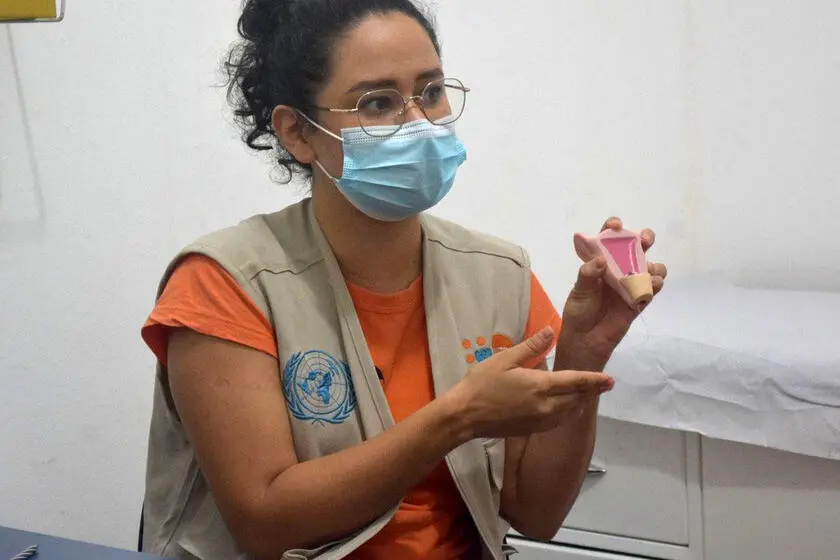In Kenya, midwifery educator Duncan Shikuku is leading the charge not just to safeguard maternal lives, but also to ensure women are given respectful, compassionate care: “Midwives are the bridge between pregnancy and life in the outside world. What could be more important?"
UNFPA
UNFPA estimates there are more than 130,000 pregnant women in Syria, around 14,800 of whom will deliver in the next month. UNFPA was part of the first cross-border convoy to arrive with much needed relief items.
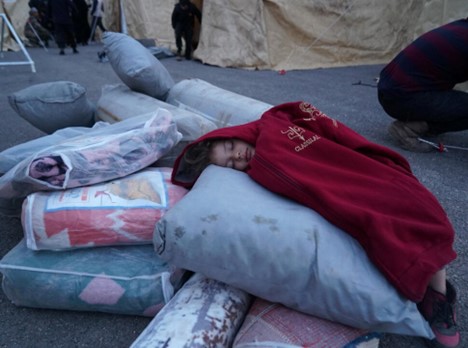
Race against time
Rescuers work into the night, racing against time, hoping to find survivors amid the overwhelming devastation caused by the Türkiye- Syria earthquake. Thousands of buildings, including maternity facilities and safe spaces for women and girls, have been severely damaged or destroyed. UNFPA is committed to support the people of Türkiye and Syria affected by the earthquakes, including the pregnant women who are expected to give birth in the coming weeks under these difficult conditions. Women working with the UNFPA-supported Women and Girls Safe Space are providing postnatal counseling and delivering maternal kits to pregnant women and new mothers.
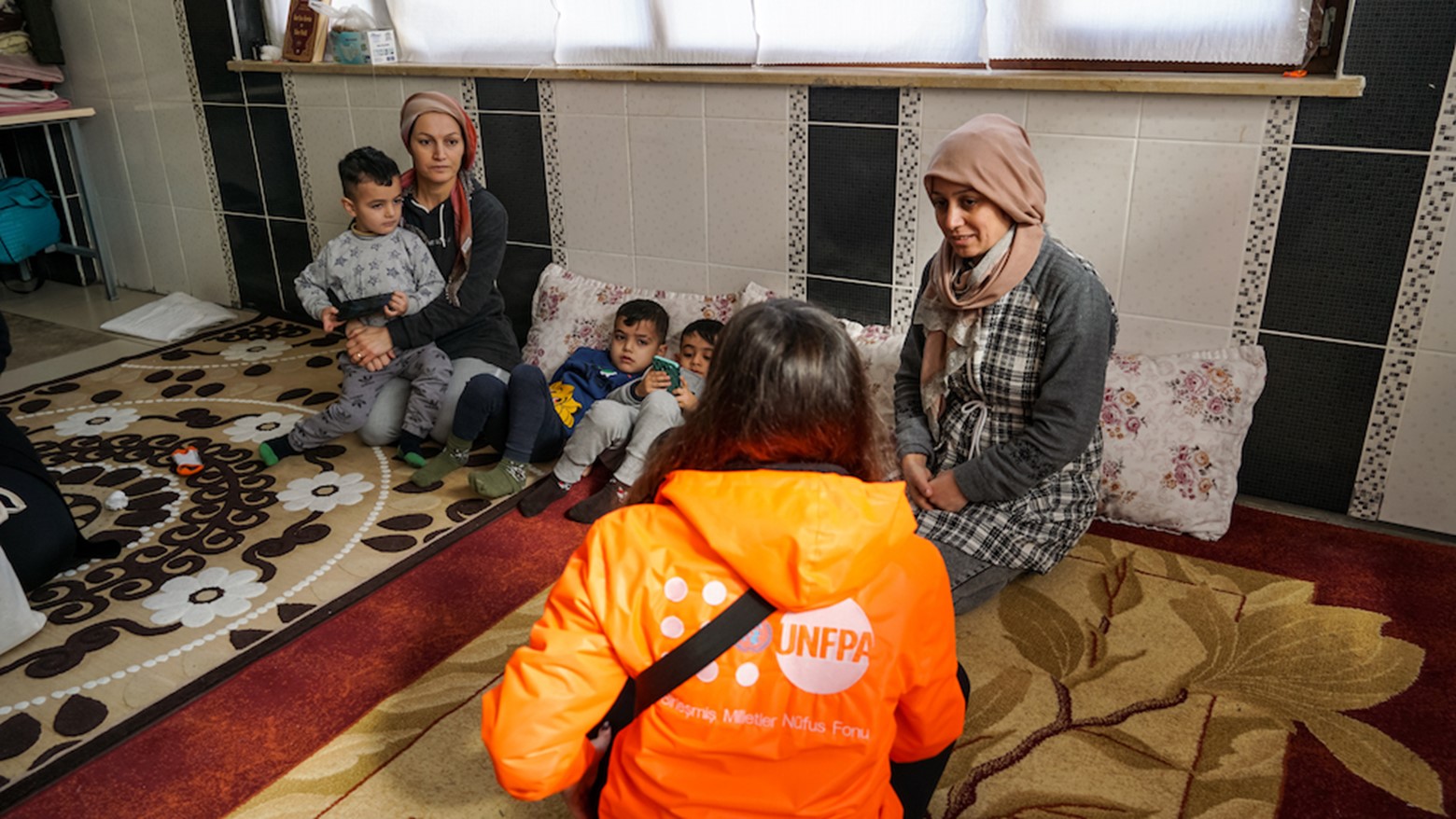
I lost everything in one minute
Early in the morning of 6 February, while most people were still sleeping, a powerful earthquake rocked Türkiye, carving death and destruction in the country’s southeast and in neighbouring Syria. Among the estimated 15 million people affected in Türkiye are over 214,000 pregnant women – of whom almost 24,000 are due to give birth in the next month. With essential medical supplies wiped out across the two countries and hundreds of health centres, maternity facilities and safe spaces damaged, UNFPA is on the ground across affected areas in both Türkiye and Syria and remains dedicated to re-establishing services critical to the well-being and protection of millions of vulnerable, traumatized women and girls in urgent need of maternal care and support.
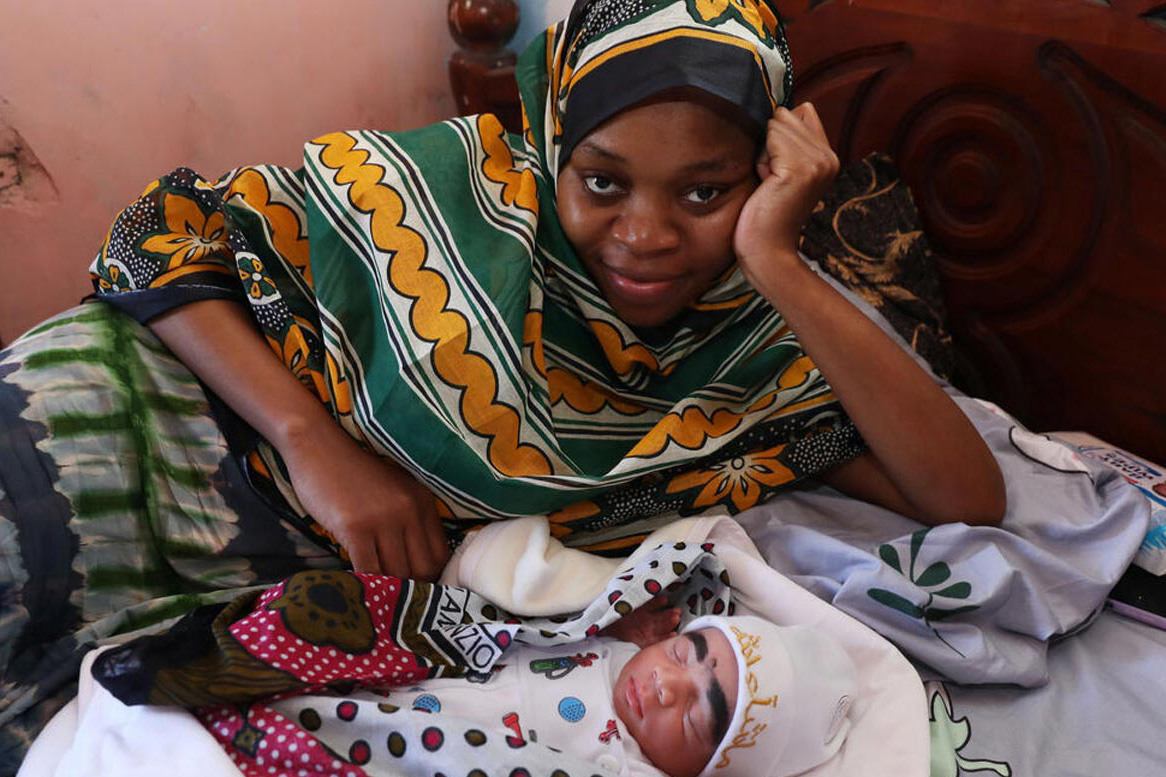
Providing women with reproductive care and choices
Shemsa Sadiq Khamis’s newborn is one of the 2.15 million babies born in the United Republic of Tanzania each year, many of them delivered by specialized midwives. UNFPA supports the training of midwives, recognizing it as a distinct profession. Tanzania’s population is growing fast and over the next three decades, the country will be one of eight representing more than half the increase in global population. Amidst the demographic changes, upholding the sexual and reproductive health and rights of women and girls is key to ensuring that Tanzania’s communities thrive.
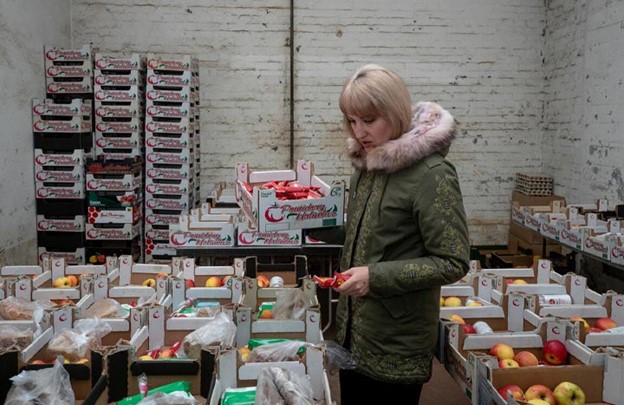
Contributing to host-country economies
Ludmila arrived in Wroclaw from Ukraine shortly after the outbreak of the war, and now works in an NGO supporting Ukranian refugess in Poland. UNFPA highlights that accepting refugees is not only the right thing to do, but it also provides significant economic benefits to the host country. The countries that welcome refugees from conflict-affected areas, recognizing their right to reach safety and access opportunity, find that many have valuable skills and make important contributions to their new homes.
Divya Chaudhry has a clear vision of her future and aspires for a career in science – she is at the top of her class and holds a leadership role in a UNFPA-supported youth health project.
As fertility declines and life expectancy rises, the global population is ageing fast. By 2050, the number of people aged 65+ will be over twice the number of children under 5, and about the same as the number of children under 12. Here are some striking facts from UNFPA's #8BillionStrong
All persons with disabilities should be afforded rights and freedoms. In Myanmar, UNFPA works with local organizations to empower women and youth with disabilities to fully participate in public life.
Can the planet sustain such a number? Is the global population collapsing? Should we be worried? These are the questions asked each time the world notches another 1 billion. Let UNFPA debunk 3 common myths about the world population and see what it all means for a world of 8 billion people.
Imagine a society where older people have meaningful jobs – that is what UNFPA advocates for: elderly people engaging in vital community activities and getting the support they need as they age.
Ranu was married at 14 and lost her first child in pregnancy at 16. To combat gender inequality and advocate for girls in her village, Ranu joined a UNFPA-supported group of activists in Bangladesh.
Inas is now a volunteer at a UNFPA-supported safe space in Jabilya, in the Gaza Strip, where she was helped to leave an abusive marriage and get medical treatment for her cancer.
Gender-based violence is one of the world’s most pervasive human rights’ violations. Every woman in every part of the world deserves to live without fear, threats and violence. UNFPA is taking action to prevent, respond to and address gender-based violence (GBV) in more than 150 countries.
Globally, 257 million women have an unmet need for a modern family planning method. Family planning is critical – even life-saving. UNFPA strives to end unmet need for family planning by 2030.

